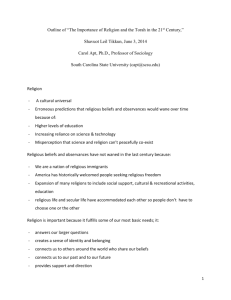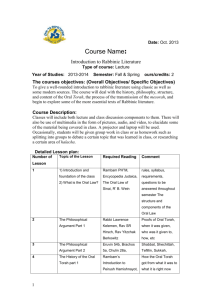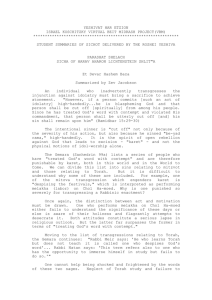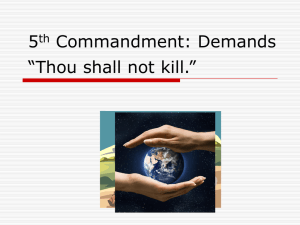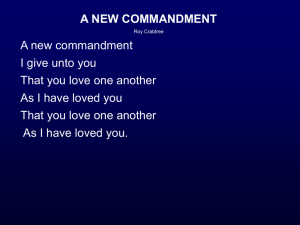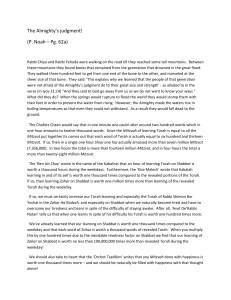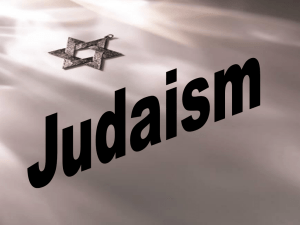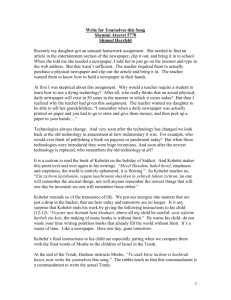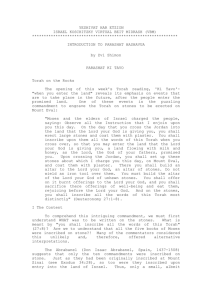If the court ruled that an entire principle has to be
advertisement
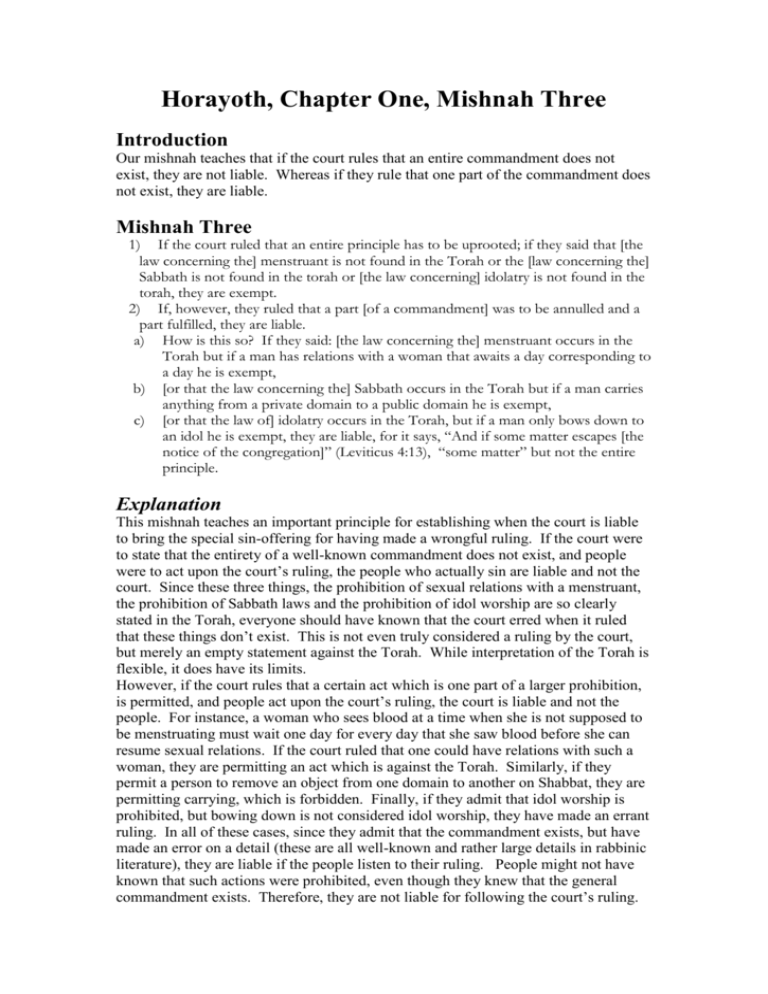
Horayoth, Chapter One, Mishnah Three Introduction Our mishnah teaches that if the court rules that an entire commandment does not exist, they are not liable. Whereas if they rule that one part of the commandment does not exist, they are liable. Mishnah Three 1) If the court ruled that an entire principle has to be uprooted; if they said that [the law concerning the] menstruant is not found in the Torah or the [law concerning the] Sabbath is not found in the torah or [the law concerning] idolatry is not found in the torah, they are exempt. 2) If, however, they ruled that a part [of a commandment] was to be annulled and a part fulfilled, they are liable. a) How is this so? If they said: [the law concerning the] menstruant occurs in the Torah but if a man has relations with a woman that awaits a day corresponding to a day he is exempt, b) [or that the law concerning the] Sabbath occurs in the Torah but if a man carries anything from a private domain to a public domain he is exempt, c) [or that the law of] idolatry occurs in the Torah, but if a man only bows down to an idol he is exempt, they are liable, for it says, “And if some matter escapes [the notice of the congregation]” (Leviticus 4:13), “some matter” but not the entire principle. Explanation This mishnah teaches an important principle for establishing when the court is liable to bring the special sin-offering for having made a wrongful ruling. If the court were to state that the entirety of a well-known commandment does not exist, and people were to act upon the court’s ruling, the people who actually sin are liable and not the court. Since these three things, the prohibition of sexual relations with a menstruant, the prohibition of Sabbath laws and the prohibition of idol worship are so clearly stated in the Torah, everyone should have known that the court erred when it ruled that these things don’t exist. This is not even truly considered a ruling by the court, but merely an empty statement against the Torah. While interpretation of the Torah is flexible, it does have its limits. However, if the court rules that a certain act which is one part of a larger prohibition, is permitted, and people act upon the court’s ruling, the court is liable and not the people. For instance, a woman who sees blood at a time when she is not supposed to be menstruating must wait one day for every day that she saw blood before she can resume sexual relations. If the court ruled that one could have relations with such a woman, they are permitting an act which is against the Torah. Similarly, if they permit a person to remove an object from one domain to another on Shabbat, they are permitting carrying, which is forbidden. Finally, if they admit that idol worship is prohibited, but bowing down is not considered idol worship, they have made an errant ruling. In all of these cases, since they admit that the commandment exists, but have made an error on a detail (these are all well-known and rather large details in rabbinic literature), they are liable if the people listen to their ruling. People might not have known that such actions were prohibited, even though they knew that the general commandment exists. Therefore, they are not liable for following the court’s ruling. The mishnah ends with a midrash supporting this view. One can understand the word davar to mean “part of the matter”; from here the rabbis learn that if the whole matter escapes the court, the court is not liable. Questions Why do you think the rabbis posited this exception to the general rule of the court’s culpability for errors?

